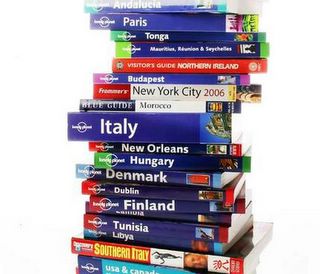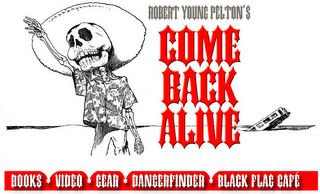
Cat Blogging Returns!
The two biggest complaints I get here is that my posts are infrequent and then quickly pile up (guilty as charged), and that I rarely post any cute cat or kitty pics. So I'm fixing that now, but I'll probably continue to be a lazy, irregular travel writer blogger.
If you need more action, and have an interest in Southeast Asia, check my FriskoDude Blog. Not only do you get the latest news on Southeast Asia, I keep the amusement quota high with recent posts on Michael Jackson and Jesus Jokes.
In other news, more tips for budding book writers at Writer's Beware, a wholly owned subsidiary of the SFWA.
Who Are We?
Writer Beware is the public face of the Science Fiction and Fantasy Writers of America's Committee on Writing Scams. Like many genre-focused professional writers' groups, SFWA is concerned not just with issues that affect professional authors, but with the problems and pitfalls that face aspiring writers. The Committee on Writing Scams, and the Writer Beware website, founded in 1998, reflect that concern.
Although SFWA is a US-based organization of science fiction and fantasy writers, the Committee's efforts aren't limited by country or genre. We've designed the Writer Beware website so it can be used by any writer, regardless of subject, style, genre, or nationality.
Writer Beware is a volunteer effort, run by a number of intrepid fraud-hunters--most of whom, because of the nature of their work, prefer to remain anonymous. Showing their faces to the world and taking the heat, however (are they crazy, or just dedicated?), are:
What Does Writer Beware Do?
Writer Beware conducts a variety of activities revolving around the effort to raise awareness of the prevalence of literary fraud.
We maintain and continually update the Writer Beware website with the latest information on literary schemes and frauds, and the most up-to-date information on what writers can to to protect themselves.
We constantly research the problems we discuss, reading trade publications, newspapers, and other sources, and subscribing to professional newsletters and mailing lists in order to keep current with issues and changes in the publishing industry. We're in regular touch with legitimate agents and editors, so we can better contrast their business practices to the nonstandard practices we warn against. And we're advised by an experienced intellectual property and consumer protection attorney.
We maintain an extensive database of questionable agents, publishers and independent editors. This database has been assembled thanks to the hundreds of writers and publishing professionals who have contacted us to share their experiences and to provide us with documentation (correspondence, contracts, brochures, and other material). Our database is the most complete of its kind in the world.
To give an idea of the scale of our data collection: When Writer Beware was founded in 1998, we had just under 100 names in our database. We now have more than 600, and add a new one, on average, every two weeks.
Note: All documentation is gathered in the understanding of confidentiality and will not be disclosed except to appropriate law enforcement agencies, in response to an enforceable subpoena, or as directed by counsel, and only upon special request.
We offer a free research service for writers with questions about agents, publishers, and others (e-mail us at beware@sfwa.org). The information we offer on questionable agents and publishers is supported by multiple identical complaints from writers or by documentation, and in most cases by both.
We assist law enforcement agencies with investigations of questionable agents, publishers, and others. Both A.C. Crispin and Victoria Strauss qualify as expert witnesses.
We help build public awareness of literary fraud by writing articles (our work has appeared in the SFWA Bulletin and Writers' Digest, among others), appearing at writers' conventions, conducting workshops and classes, and participating in online writers' discussion groups and message boards.
Writer Beware Link



